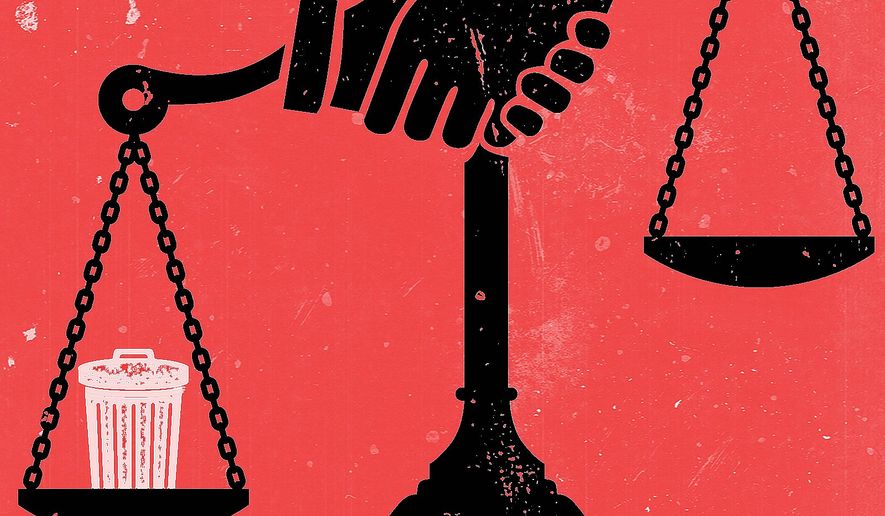OPINION:
Why are diplomats such clever negotiators? That’s a trick question. They often are not. How would they acquire such skills?
People who go into business learn to negotiate proficiently. Or they don’t, in which case they’re soon asking: “You want fries with that?”
If you’re not a businessperson, perhaps you’ve bargained over a house or haggled with an employer over your salary. When you work for the government abroad such issues are mostly settled for you.
Sometimes, too, diplomats’ bosses let them know that it’s OK to cut a bad deal so long as it can be spun as a good deal.
The most obvious and egregious example: The Joint Comprehensive Plan of Action that the Obama administration concluded with the Islamic Republic of Iran. The JCPOA provided the world’s leading state sponsors of terrorism with hundreds of billions of dollars in exchange for a promise to slow-walk — not terminate — their nuclear weapons program.
That deal was modeled on the 1994 Agreed Framework under which President Clinton gave North Korea massive aid in exchange for a promise to cease — not just delay — its nuclear weapons program. The regime took the money and ran a nuclear weapons program anyway.
Also the result of American diplomatic incompetence: The 2013 Framework for Elimination of Syrian Chemical Weapons. That deal was intended to ensure that dictator Bashar Assad surrendered his chemical weapons stockpiles and never again used such weapons against his own people.
Two years later, Ambassador Samantha Power gave the commencement address at the University of Pennsylvania. I happened to be in the audience because my daughter was among the graduates.
Ms. Power described the pivotal role she had played in those talks. Though the challenge seemed daunting, she said, President Obama had faith in her, and she told him: “I’ve got this!”
The Class of 2015 cheered, oblivious to the fact that Mr. Assad retained and continued to use his chemical weapons, as well as other heinous and outlawed weapons. Had my wife not restrained me, I might have stormed the stage and grabbed the microphone from her hand.
Ms. Power has just published a memoir, “The Education of an Idealist,” in which she is more candid, acknowledging that, due to President Obama’s policies, “Assad could reasonably conclude that, going forward, he could starve his people into submission, carpet bomb hospitals and schools, and eventually even resume chemical weapons attacks, all without the United States doing much to stop him.”
Which brings me to this: Donald Trump entered the White House as “The Art of the Deal” grandmaster. That he could put such skills to good use in diplomatic palavers seemed plausible.
So far, however, he has not been able to strike a bargain with any of America’s adversaries.
At least part of the explanation: In the business world even the toughest and meanest competitors want to end up with a deal — a good deal, not a bad deal, to be sure, but they don’t rule out compromise, giving for getting, “win-win” outcomes.
The same is rarely true of despotic ideologues. They tend to be zero-sum kind of guys, for whom turning a profit is not the only or even primary objective.
Ayatollah Ruhollah Khomeini, first “supreme leader” of the Islamic Republic of Iran, was certainly no material girl. He famously said that the revolution he sparked in 1979 was “not about the price of watermelons.”
Though his heirs have made themselves filthy rich, they don’t give a fig about their increasingly impoverished subjects. Spending money on terrorists is a priority. Creating the best darned health care system in the Middle East — not so much.
Similarly, I doubt Kim Jong-un has been tempted by President Trump’s repeated offers to help North Korea “enjoy prosperity like he has never seen.”
A year ago, Mr. Trump showed the young dictator a 4-minute video that included images of American missiles and fighter jets producing “fire and fury.” The president seemed to be making Mr. Kim “an offer he can’t refuse” (in the immortal words of Vito Corleone). At this point, I suspect Mr. Kim figures it was just a bluff.
Historically, conflicts often dragged on until it was clear who was victor and who vanquished; who had triumphed and who had suffered defeat. Neither side found ambiguity an appealing option.
As recently as World War II, Winston Churchill and Franklin Roosevelt held fast against those who argued for a “diplomatic solution” with Nazi Germany. They insisted instead on “unconditional surrender.” And President Reagan, asked about his strategy for the Cold War, famously said: “We win, they lose.”
Today, many Americans and Europeans have come to believe that the distinction between winning and losing should be hazy; that maybe we’re not so good and our enemies not so bad, so perhaps detente is a good-enough goal; that at game’s end, all the children should take home a trophy.
It certainly would be nice if we could convince Ali Khamenei, Kim Jong-un, the Taliban, Vladimir Putin and Xi Jinping to join what we like to call the “liberal, rules-based order;” to embrace Enlightenment values; to prefer commerce over conquest; to cultivate productive interdependence within an “international community.”
Can’t we help them see what we see — that in the 21st century, peace and prosperity are the only sensible objectives?
As they say in Mr. Trump’s hometown: Fahgettaboudit! And until Western negotiators — whether diplomats or tycoons — come to terms with this stark reality and adjust their policies and negotiating strategies accordingly, the chances of achieving good deals are slim to none.
• Clifford D. May is founder and president of the Foundation for Defense of Democracies (FDD) and a columnist for The Washington Times.




Please read our comment policy before commenting.